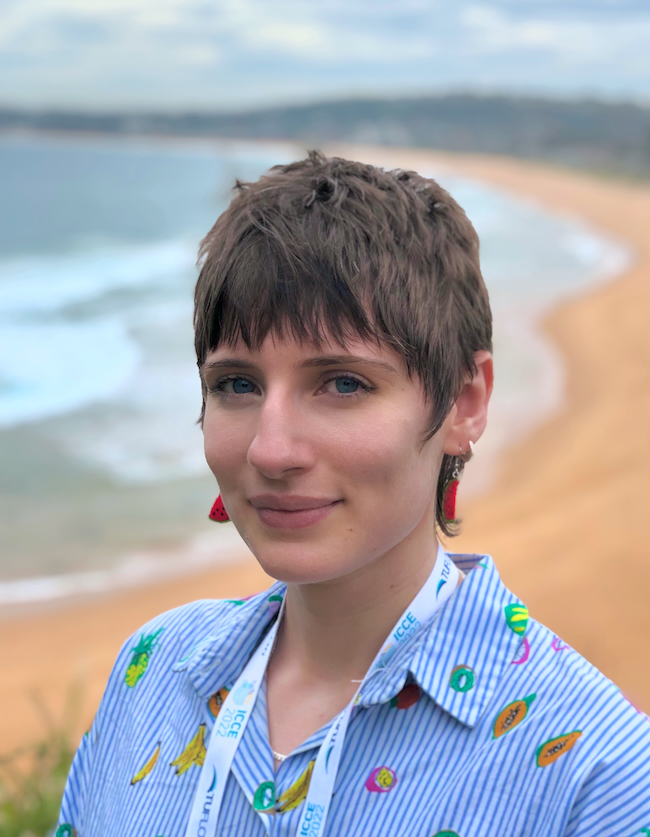Award for Geographical & Earth Sciences PhD researcher
Published: 13 August 2024
Freya Muir has been announced as this year’s winner of Caroline Coignu Award, one of the Academic Awards presented annually by the British Federation of Women Graduates (BFWG).
A PhD student from the School of Geographical & Earth Sciences has been presented with an award for her research on coastal geomorphology.
Freya Muir has been announced as this year’s winner of Caroline Coignu Award, one of the Academic Awards presented annually by the British Federation of Women Graduates (BFWG).

The awards - one-off prizes varying in value from £1,000 to £6,000 - are given to women doctoral students in recognition of academic excellence coupled with the ability to communicate to an educated but non-specialist audience.
Freya is the second University of Glasgow researcher to be recognised by the BFWG, following Frances Osis of the School of Humanities, who received an award in 2019. Freya is the only Scottish PhD student to receive an award this year.
Freya is a geomorphologist and climate scientist, researching how our coasts have changed and will continue to change with increased storms and sea level rise.
In her PhD, she is using publicly available Earth-observing satellite data and machine learning techniques to formulate a framework for monitoring past coastal histories and model potential near-futures.
Capitalising on the wealth of past information that satellites afford us, and on automated techniques for mapping coastal change, Freya hopes to build a user-friendly and efficient prediction software for coastal managers and stakeholders.
Prior to her PhD, Freya was the sole research assistant on the Scottish Government’s Dynamic Coast project, which aimed to fill Scotland’s evidence base of coastal change.
Freya is continually fascinated by patterns in geomorphology, and enjoys finding elegant and simplistic ways of explaining and modelling Earth’s surface processes.
Coupling this with a passion for space and astronautics has led Freya to her current focus on remote sensing for geomorphology, using ever-evolving technologies to help monitor and potentially predict natural hazards and their effects on vulnerable populations.
She said: “I am so ecstatic to have been granted the Caroline Coignu Award as part of the British Federation of Women Graduates Academic Awards. It means so much to me to be selected amongst this year’s exceptional PhD students, but also to be joining such an accomplished lineage of women in higher education.
“Women make up only 30% of the researchers working in coastal science and engineering, so I’m proud to have my work in coastal monitoring recognised and offer whatever inspiration I can to the next generation of women geoscientists.
“Writing the application for the award and then a speech about my research for the interview was also an immensely helpful exercise, as I’m always keen to try new ways of communicating science to a broader audience.
“I’d like to sincerely thank the BFWG awards committee for selecting me, and I strongly encourage any female PhD students to apply for the awards next year!”
Freya’s PhD co-supervisor, Professor Larissa Naylor, has also benefited from financial support from the BFWG. In 2002, an international award from the federation helped Professor Naylor return to academia after four years in government and consultancy work following the completion of her doctorate.
First published: 13 August 2024

